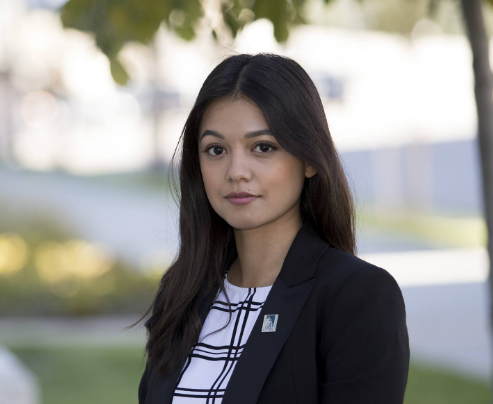Denver Students Discuss DACA Future, Get a Lesson in Advocacy
ByBy Jennifer Meckles
Watch the full story at KUSA NBC TV >
One year ago, everything changed for Gabriela Rodriguez.
The 24-year old learned her future as a DACA recipient was in jeopardy.
On September 5, 2017, Attorney General Jeff Sessions announced the Trump administration was ending the federal program that prevents the deportation of thousands of young people brought to the U.S. illegally as children.
“Every day we live with the fear that we might wake up and there’s going to be an announcement in the news that we can no longer work,” she explained.
DACA remains in effect for now, but the program’s future remains tied up in legal challenges and proposed changes to immigration legislation.
Rodriguez has long advocated for the program.
“I’ve been advocated for DACA recipients since I was in college,” she said. “I would speak with elected officials seeking reelection who wanted to get out the vote and wanted support for DACA recipients, wanted to see permanent legislative change to the issue.”
Rodriguez is also the External Affairs Coordinator for Kipp Colorado Schools. On Wednesday, she taught a lesson in advocacy to a group of high school students in Denver with DACA as the focus.
“Show of hands, how many of you guys have conversations related to advocacy?” Rodriguez asked the room, full of students in the Student Ambassador Club at KIPP Denver Collegiate High School.
Rodriguez, with the help of Club Co-leader Zoe Dunivin, helped explain what advocacy is, and how the students can use their voice to create change in their school and in other issues in their community.
“The way you convince people to help contribute to a resolution is by sharing your story,” she told the students, “When you advocate for something, it helps you feel less alone and it helps you to feel empowered.”
She invited the students to share their thoughts on DACA and to explain any change they’d like to see to the program. Students who spoke publicly said they were not DACA recipients, themselves, but had several connections to others involved in the issue.
“In my opinion, my loved ones have always been very insecure about it,” said senior Jasmine Rodriguez. “I just hear about it, I see it in the news, I see students here struggling with it.”
“We all come from different backgrounds,” said fellow senior Steven Hernandez Lopez. “Many of us come from parents who are immigrants or relatives who need DACA to be supported. It’s really influential to see my strong peers working together to make sure we all become one big family helping each other.”
“The status of DACA can literally change overnight,” Lopez added. “And it’s really important that we keep that in the back of our heads too. And use as motivation to try and improve the world around us.”
